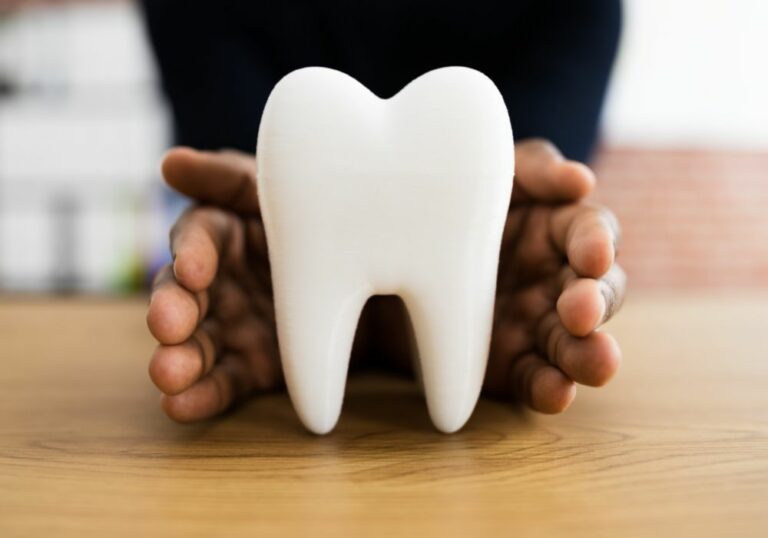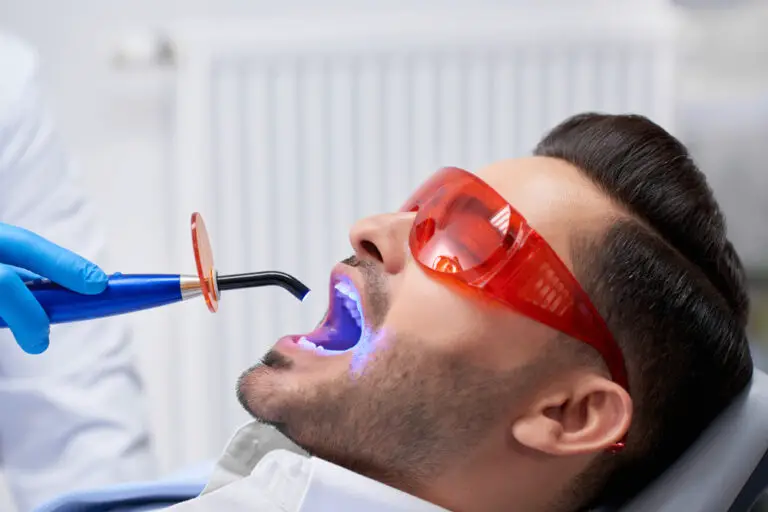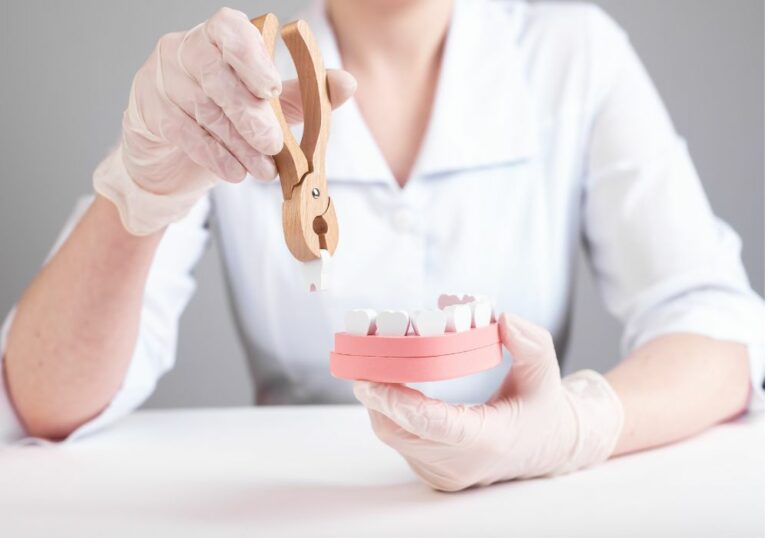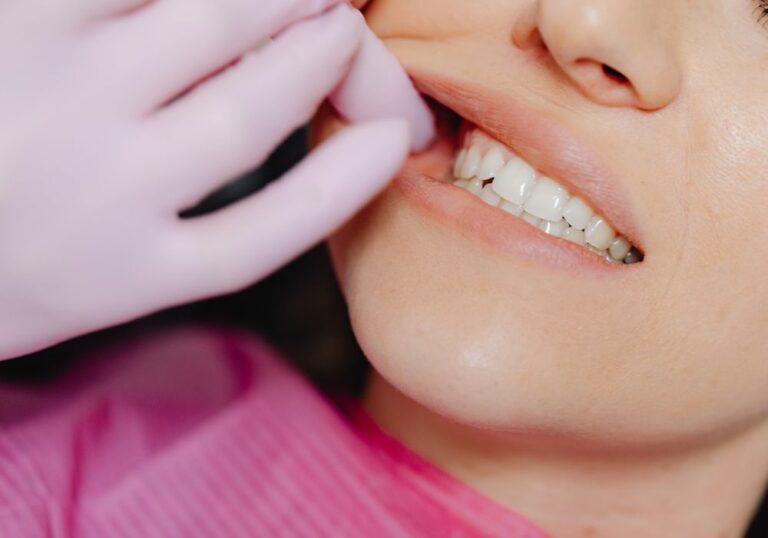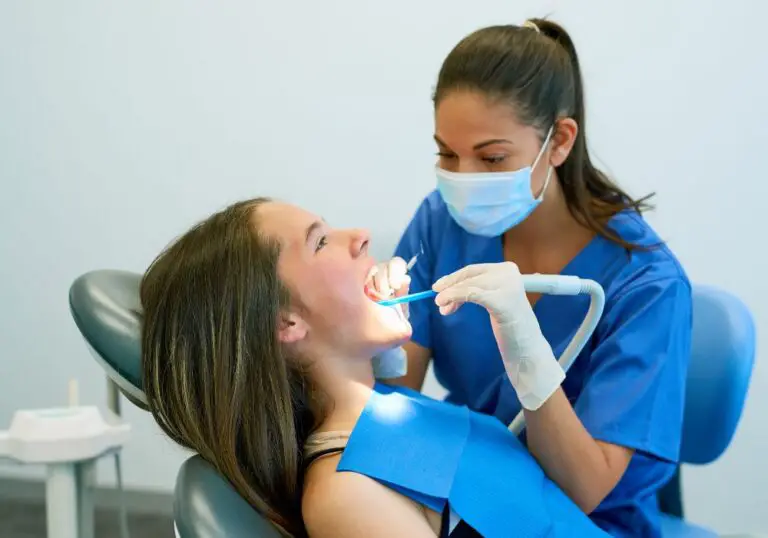Most people experience some kind of toothache at some point during their lives, and although occasionally it can resolve itself in a couple of days, usually it won’t go away without an intervention by a dentist.
Specifically, some people may notice pain while they eat, and this can be a sign that something needs to be checked out and fixed – and to help you work out what might be the cause, in this post, we answer the question, why do my teeth hurt when I eat?
If you want a preview of some of the things we’re going to be talking about, you can also check out this video before reading on.
Some common reasons why teeth hurt when you eat
Here are some of the most common types of toothache that people experience and the possible causes.
1. Sensitivity to hot and cold
Many people experience a stabbing pain that is set off by biting into hot or cold food. There are a few common causes for this.
- Thin enamel
Enamel is the hard outer layer of our teeth that protects the more sensitive parts inside like the dentin and the nerves. Tooth enamel mostly consists of minerals, and once it is lost, it can’t be regrown.
If the enamel layer on your teeth thins or disappears entirely, it exposes the sensitive parts of your teeth below, and when you eat hot or cold foods, this can cause sharp but short-lived pain.
If you have lost the enamel covering on your teeth, this problem won’t go away, so if you don’t want to just put up with it, you should see your dentist to discuss possible solutions.
- Whitening treatment
If you are undergoing a whitening treatment that uses hydrogen peroxide, it can leave your teeth feeling sensitive, and this may cause pain when you eat hot or cold foods.
The good news about this is that the pain will usually subside around one or two weeks after the treatment ends – however, if the pain is extreme and too much to bear, you should stop the treatment at once.
- Early tooth decay
If the enamel is worn away, it allows bacteria to attack the tooth below, and a sensitivity to hot and cold can also be a sign that you are experiencing the early signs of tooth decay.
In this case, you should see a dentist as soon as possible since the sooner you catch the problem, the easier it will be to fix it.
2. While chewing
Among the most common sensations of pain in teeth occur while you are chewing, and there are several possible causes for this. Here are some of the most common.
- Tooth decay
When the enamel on your teeth is worn away, bacteria can attack the inside of the teeth, and as mentioned above, the early signs can be sensitivity to hot and cold foods.
However, as this progresses, you can develop a cavity in your tooth, a hole that, if left untreated, will simply continue to get bigger until it reaches the most sensitive parts of the teeth, causing increasing levels of pain.
If you catch this early enough, the treatment is just a filling, a relatively simple procedure. However, if left until too late, you will require a root canal to save the tooth, something that’s likely to be far more expensive.
- Loose filling
If you previously had a filling and now the filling has come loose, you may experience similar symptoms to if you have tooth decay. However, the giveaway will be that it’s in a tooth that you’ve already had filled.
Your response should be the same though. You need to see a dentist at the earliest opportunity to have the cavity refilled to prevent the problem from becoming any worse.
- Cracked tooth
If one of your teeth is cracked, it can cause pain when you bite into food, and a cracked tooth can also allow bacteria to bypass the protective enamel layer and attack the more vulnerable inner parts of the tooth.
As this develops, this can lead to tooth decay, and the symptoms – as well as the treatment – are then similar to if you have a cavity.
You might not immediately be able to tell if you have a cracked tooth, but in any case, you should see a dentist as soon as you can to have it checked out and repaired.
Often, it will take an X-ray to diagnose a cracked tooth, and the treatment will depend on whether decay has occurred or not.
- Gum recession
Another cause of pain when chewing is gum recession. As we age, our gums recede, and this can eventually expose the lower parts of our teeth like the roots.
Then, when we eat, it can cause pain as the parts of the teeth that should be below the gum line are no longer protected.
As well as aging, receding gums can be caused by poor oral health, over-enthusiastic brushing, plaque and tartar build-up, smoking and more.
If you are suffering from this condition, you should consult your dentist for advice.
- High tooth, crown or filling
When our back teeth are properly aligned, they fit together perfectly, so when we chew, the pressure is spread evenly over our teeth.
However, if a tooth, crown or filling is sitting too high, it can throw this off, creating extra pressure on one part of your mouth.
To fix this, you’ll need to see a dentist to have your bite readjusted to distribute the pressure more evenly.
- Abscess
An abscess is a pus-filled cyst, and if one develops, it can cause intense pain when you eat. As they develop, abscesses can cause significant pain and discomfort when you’re not eating too, and they can also lead to infection and other serious complications.
As a result, a dental abscess needs to be diagnosed and treated as a matter of urgency.
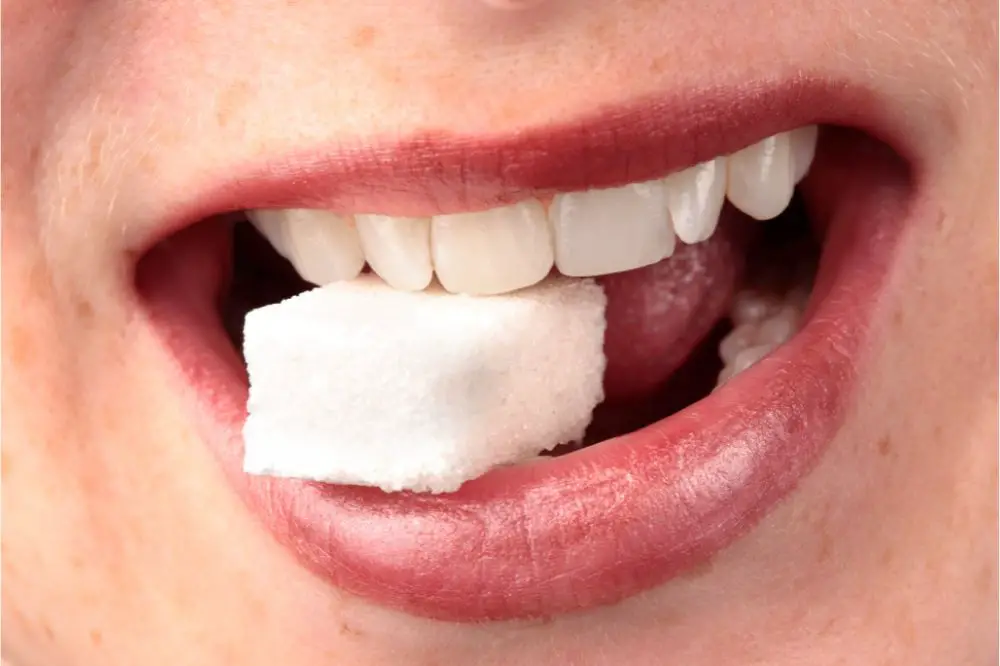
3. Dull ache in top teeth
A dull ache in the top teeth is a specific sensation that only has a couple of likely explanations.
- Sinus infection or congestion
If it is only the top teeth that hurt when you eat, it is most likely to be related to a sinus infection or congestion.
This is because the roots of your top teeth are close to your sinuses, and pain in one will also affect the other.
The solution here is to treat the sinus infection or congestion – and the pain in your teeth will then go away too.
- Grinding teeth
If you have pain in both your top and bottom teeth, it could also be due to grinding your teeth – and if you do this in your sleep, you might not even be aware of it.
If you share your bed with someone, ask them if they have noticed you grinding your teeth during the night.
If this is the problem, you can wear a tooth shield at night to help protect your teeth.
4. After eating
If you experience pain after eating, it could be related to many of the same causes as pain while chewing. However, here are the two most common to look out for.
- Tooth damage or decay
If you have more advanced tooth damage or decay, the pain may linger after your meal has ended.
If you experience anything like this, you should see a dentist as soon as you can since the problem will only get worse. If you don’t take action early enough, you may even end up requiring a root canal.
- Abscess
A developing abscess can also cause pain after you have finished eating, and we’ve already mentioned above how serious a condition this can be.
This means if you experience pain after eating, you should get it checked out ASAP because it’s usually not a good sign.
5. After a dental procedure
If you have recently undergone a dental intervention such as a filling, root canal, wisdom tooth removal or anything else, it’s normal for your teeth to hurt and for your mouth or jaw to feel tender for a while after – even up to two weeks in the case of a filling.
However, if your teeth seem to be sensitive or painful an unexpectedly long time after the procedure was done, you should contact your dentist for further advice.
The best option is to see a dentist early
As we mentioned at the beginning, although tooth pain can sometimes go away by itself, most of the time, it will only get worse if you leave it – which means the best advice is to book an appointment with your dentist as soon as you become aware that something is wrong.
Most of the causes of tooth pain when you eat come from poor dental health, so the best way to minimize your chances of suffering from these kinds of conditions is to follow dental health best practices like brushing twice a day, flossing and having dental cleanings twice a year.

